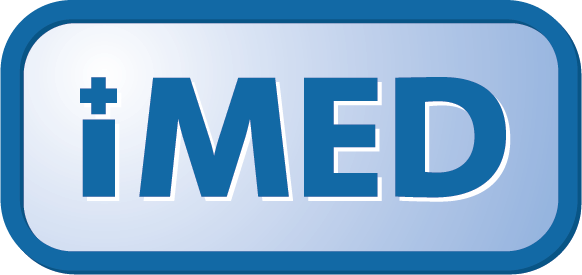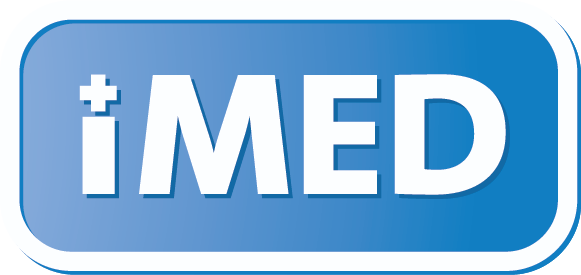
Frequently Asked Questions



Enrolment, Opt Outs, coverage date changes, and extensions
How do I know if I am enrolled?
New UBC international students are automatically enrolled for iMED as a result of registering for one or more on-campus (in-person) courses. After you register for your first on-campus (in-person) course at UBC, check your Workday Account Activity to confirm you have been charged the iMED fee. If you do not see the iMED fee listed, contact UBC International Student Advising.
(Please note: Canadian citizens and permanent residents of Canada are not covered by iMED.)
What if I already have other insurance?
If you are already covered by MSP, by another Canadian provincial health plan, or by mandatory health insurance provided by third-party sponsors with whom UBC has an agreement, you can Opt Out of iMED before the end of your third week of classes at UBC. After the third week of classes you cannot Opt Out. Please note that having other private insurance does not make you eligible to Opt Out of iMED. For Opt Out instructions and forms, visit the Opting Out page.
Can I Opt Out of iMED, and if so, how?
Go to the Opting Out page to find out if you are eligible to Opt Out of iMED. Depending on your reason for opting out, you will either need to submit your request to DCIS or to UBC.
If eligible for an opt out be sure to:
- Use the form that matches your reason for opting out
- Include the required proof documents
- Read the directions on your opt out form about where to send your request
- Submit your Opt Out form before the end of your third week of classes at UBC
When my iMED coverage expires, am I automatically covered by BC MSP?
No, you are not automatically covered by MSP; eligible students must apply for it by mailing or faxing an MSP application form to the BC Ministry of Health Services. Application forms are available at the MSP website. (Note: One-term exchange students and other students who will not study in BC on a study permit valid for six or more months are not eligible for MSP and do not need to apply for it.)
If I am not eligible for MSP, how can I extend my iMED coverage?
Students who are not eligible for MSP may extend their iMED coverage if they remain registered UBC students during the extension period. To apply, submit the iMED extension application form to DCIS before your iMED expiry date.
Please note:
If your iMED coverage has already expired, you may not be eligible to extend iMED. In that case DCIS can offer you alternate medical insurance options.
How can I change my coverage dates if I arrive in a calendar month later than my iMED start date?
Read the Coverage Dates page, and submit the Coverage Date Change Form to DCIS with proof of the date you arrived in BC/Canada. Submit the form up to 3 weeks prior to your arrival or immediately after your arrival.
Coverage for dependent family members
Can I get coverage for my family members?
You may purchase temporary iMED coverage for an eligible spouse/partner and/or dependent children who will reside with you in Canada. Read the Family Members page, and submit the appropriate application form with your payment to DCIS.
How much does iMED cost for my dependents and how do I pay for it?
The cost depends on whether you:
- enrol your dependent(s) for the same coverage dates as yours or;
- enrol your dependents for a customized period
The rates are listed on the two types of application forms for enrolling dependent family members:
The iMED Card
Where do I get my iMED card?
Your iMED card will be emailed to you at the email address provided to DCIS by UBC. You will need to print the document attached to that email and cut out your iMED card. You can also keep a soft copy on your mobile device.
What should I do if I need to go to the doctor or hospital, but haven’t received an iMED card?
In a medical emergency, the priority is to get medical treatment as quickly as possible. In this case you would be billed for the medical service. As soon as you are able to, notify DCIS or an international student advisor that you have received medical treatment and need your iMED insurance documents to make a claim.
If it is not an emergency, first check whether you are covered by iMED by checking your Workday Account Activity to confirm you have been charged the iMED fee. If you do not see iMED in your statement of fees, contact an international student advisor to confirm that you are eligible for iMED coverage. If you see the iMED fee contact DCIS using this contact form with “Missing iMED card” as the subject, and include your name, UBC student number, and date of arrival in Canada.
What should I do if there is incorrect information on my iMED card?
Use the DCIS Contact Form with “Incorrect iMED card” as the subject. Include your name, student number, date of arrival in Canada, and description of the error you detected on the card.
Claims and Direct Billing
If I paid for a doctor visit or for prescription medication, how do I get my money back?
Submit your claim to MSH following the instructions provided on the Claims page of this site. Contact MSH for help completing a claim and to check on the status of your claim.
Which clinics, emergency departments, and pharmacies can bill iMED directly, so that I don’t have to pay up front?
Coverage
What does iMED cover?
iMED covers hospitalization and medical services (including out-patient treatment at a doctor’s clinic) for an unexpected sickness or injury. It also covers Routine Care for pre-existing conditions, and includes a maternity care benefit. There are exclusions, including but not limited to preventative treatments, elective medical expenses. For the full coverage details (benefits, conditions, limits, and exclusions) please refer to the iMED Policy Wording.
Does iMED cover dental care?
International Student Medical Insurance does not cover routine dental care. iMED only covers certain types of Emergency Dental Services for unforeseen incidents such as:
- Dental injury from an accidental blow to the face
- Sudden onset of acute dental pain (for example an abscess or infection) that requires treatment within 48 hours of the onset of pain. Please refer to the “Emergency Dental Treatment” and “Acute Dental Care” benefit descriptions in the iMED policy wording.
If I need help understanding what is covered by iMED, who can I contact?
Contact MSH Assistance to request pre-approval for a medical treatment, procedure, or specialist consultation. MSH contacts are on your iMED Card.
You may also contact DCIS for general coverage questions.
What is the difference between iMED and BC Medical Services Plan (MSP)?
Both iMED and MSP are basic health care plans that cover primary health services including hospital and physician care and most medically necessary diagnostic services.
iMED is a temporary private health plan to cover students during their waiting period for MSP, or for the full length of their study period if they do not qualify for MSP (e.g. one-term exchange students).
- iMED includes some benefits not offered by MSP (such as coverage of ambulance services and prescription medication)
- The coverage for hospital and doctor fees under iMED is very comprehensive, but is subject to limitations and exclusions.
MSP is the public (BC government’s) health plan; if you live in BC for six months or longer, you are required by law to enrol in this plan. You become eligible after living in BC for three months, but you should apply as soon as you arrive, as processing times can be long.
- The coverage for hospital and doctor fees under MSP is subject to different limitations and exclusions than the iMED plan. Also, medical expenses covered under MSP are billed direct to an MSP “Personal Health Number” whereas under iMED in some circumstances you may need to pay first for medical expenses and then claim for reimbursement.
- Visit www.health.gov.bc.ca/msp for more detailed information.
What is the difference between iMED and the UBC student union (AMS/GSS and SUO) Extended Health and Dental Plans?
The AMS/GSS and SUO Health and Dental Plans are provided by UBC student unions at Vancouver and Okanagan campuses respectively. They typically are valid for the duration of eligible members’ UBC program. They include extended health benefits, to supplement the primary health services coverage of iMED and BC MSP. Unlike iMED, AMS/GSS and SUO benefits do not cover hospital, doctor, or diagnostic service expenses. Instead they cover a portion of expenses for prescription drugs, vision care, paramedical services, medical supplies, and other medical expenses not covered by BC MSP, plus routine dental care.
For full information about the AMS/GSS (UBC Vancouver) or SUO (UBC Okanagan) Health and Dental Plan, visit www.studentcare.ca and select your UBC campus plan.
Are birth control medications covered under iMED?
No. For reference see the list of General Exclusions in the iMED Wording.
Am I covered while playing sports or participating in recreational activities?
You are covered for most recreational sports, but you are not covered for the following sports and activities:
Scuba diving at a depth greater than 15 meters, rock or precipice climbing at a height greater than 15 meters, hang gliding, paragliding, sport parachuting, sky diving, athletic or sports activities for remuneration or prize money, or while riding or driving in or on any motorized vehicle or device in any race of speed contest.
For reference see the list of General Exclusions in the iMED Policy Wording.

